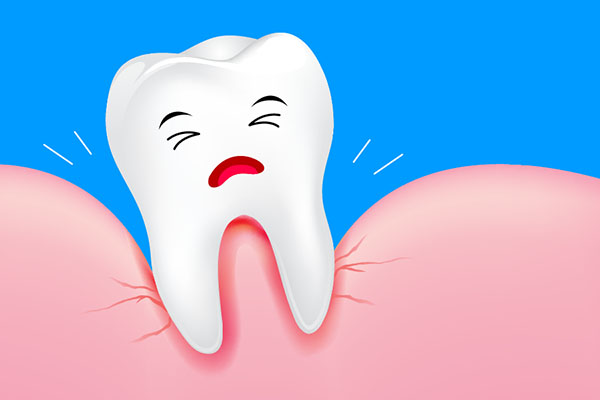 Bleeding from any area of the body is concerning, and bleeding gums are no exception. There are some simple causes for gums to bleed, including a new flossing routine or brushing too hard. A more serious concern for gum bleeding is periodontitis, also known as gum disease. Gum disease has many symptoms, and individuals who experience regular bleeding should consult a dental professional. Learn helpful information about gum disease and other potential reasons for gum bleeding.
Bleeding from any area of the body is concerning, and bleeding gums are no exception. There are some simple causes for gums to bleed, including a new flossing routine or brushing too hard. A more serious concern for gum bleeding is periodontitis, also known as gum disease. Gum disease has many symptoms, and individuals who experience regular bleeding should consult a dental professional. Learn helpful information about gum disease and other potential reasons for gum bleeding.
What is gum disease?
Periodontitis is very common during adulthood: The Centers for Disease Control and Prevention states that slightly more than 47% of adults 30 years of age and older have some form of periodontal disease. Gum disease typically develops in four stages. First, a sticky film called plaque forms on the teeth. Plaque forms because of the interaction between the naturally occurring bacteria in the mouth and foods and drinks consumed.
Regular brushing and flossing remove plaque. However, any plaque that is not removed from the teeth through regular brushing can harden under the gumline and turn into tartar, the second stage. Only a professional dental cleaning can remove tartar.
Third, if tartar remains on the teeth and gums, gingivitis develops. Gingivitis is inflammation of the gum tissue around the base of the teeth. It is during this stage that individuals may start to experience bleeding gums. Fortunately, gingivitis is reversible with professional help and good oral health at home.
Fourth, the ongoing gum inflammation can lead to periodontitis, the final stage of gum disease. The bacteria continue to grow and create infections that can ultimately lead to tissue, bone, and tooth loss.
What are the symptoms of gum disease?
Gums that bleed easily are just one symptom of gum disease. Additional symptoms include:
- Swollen, puffy, or tender gums
- Halitosis or bad breath
- Painful chewing
- Bright red or purplish gums instead of pale pink
- Loose teeth
- Gums that pull away from the teeth
If individuals notice one or more of these symptoms, schedule an appointment with a dentist. Earlier treatment for periodontitis increases the chance of reversing the damage.
What are other causes for bleeding gums?
Gum disease is only one possible reason for gums to bleed. Other common causes include certain medications, hormonal changes during pregnancy, smoking or chewing tobacco, and dental appliances or dentures that do not fit properly. Individuals who experience occasional bleeding from the gums do not need to see a dental professional immediately. However, patients who have regular bleeding and are unsure about the cause should schedule an appointment to see a dentist.
How can I prevent gum bleeding?
Good oral health and regular dental checkups can prevent bleeding. It takes a combination of these efforts to ensure that plaque is effectively removed from the teeth and that tartar and gingivitis are reversed. If a dentist concludes that gum bleeding is not caused by gum disease, patients should visit a doctor to find out if there are other underlying conditions.
Conclusion
Bleeding gums are a sign of gum disease, but there are also other causes. If you have gums that bleed regularly, schedule a consultation with a dentist to determine the cause.
Request an appointment or call Lush Dental Co. at 801-326-4131 for an appointment in our Highland office.
Related Posts
Diabetes can wreak havoc on several aspects of a person’s health, including tooth and gum health, with a strong connection between diabetes and gum disease. Bleeding gums are one of the earliest signs of gum disease and should be an immediate cause for concern for any person who lives with either type 1 or type…
Bleeding gums are a hallmark sign of gingivitis. Gingivitis is a mild form of gum disease. Inflammation in your gums can cause them to appear red and puffy. Your gums may bleed when you brush or floss your teeth the way you normally do. You may have healthy gums and still develop gingivitis during pregnancy.…
Patients who notice their gums bleeding upon brushing, flossing, or even eating may initially panic. However, while bleeding gums often signify the beginnings of gingivitis, this inflammation and the resulting gum disease can be reversed with timely and targeted treatments if it is caught soon enough. It is important to investigate the cause of long-term…
